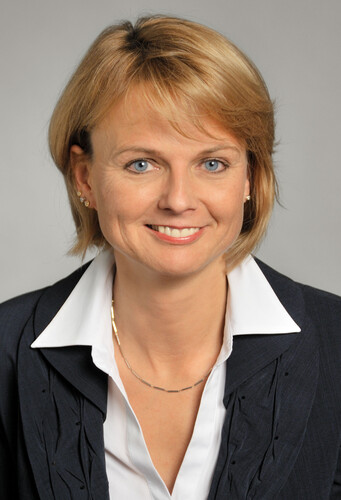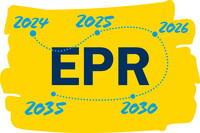Upcycling polyolefins / Interseroh presents Recycled-Resource process
Cologne. INTERSEROH Dienstleistungs GmbH will present its innovative recompounding process Recycled-Resource at the international conference “Future of Polyolefins”, which begins next Wednesday. With Recycled-Resource, the subsidiary of recycling specialist ALBA Group has created a technique with which products made from recycled plastics can be manufactured exactly according to customer technical requirements. The “Future of Polyolefins” conference is an international industry gathering of senior executive from petrochemical companies, plastic converter, technology providers, chemical intermediate suppliers, researchers, as well as other influential stakeholders amongst the value chain and is taking place this year at Hotel Park Plaza Victoria Amsterdam in the Netherlands from 18 to 19 January.
Dr Manica Ulcnik-Krump, Head of Research and Development Recycled-Resource at Interseroh will explain the developments in the field of polyolefin upcycling process for used plastics from household waste on the second day of the conference as part of a lecture entitled “Upcycling approach that enables polyolefin plastic waste to lead a second life”. “With our process and our research and development team, we offer manufacturers application solutions for almost all areas and technical requirements,” says Ulcnik-Krump. “Our recycled raw material Procyclen has been honoured with several awards and is in every respect technically equal to new material based on crude oil. Thanks to our range of solutions, customers have the chance to come into contact with the topic of raw material efficiency at the highest-quality level. It is a great pleasure to present our unique Recycled-Resource process to the most prominent market key players in the area of polyolefine value chain. This confirms that polyolefin recycling is gaining an increasing importance for the manufacturers of plastic products.”
Recycled-Resource is based on a complex upcycling recompounding process: The comprehensive, high-tech sorting of the plastic waste from the yellow bin is followed by the re-compounding, encompassing the extrusion, re-stabilising and reconstruction of the molecular structure as well as the chemical modification with the addition of additives in order to obtain the precise plastic characteristics that are required by the customer. The Fraunhofer institute UMSICHT has compared the production of plastic granulate from new material with the production of Procyclen through Recycled-Resource in terms of sustainability. The clear result: if new granulate is replaced directly by Procyclen, the greenhouse gas emissions produced in manufacturing decrease by up to 50 per cent.




![[Translate to English - Englisch:] [Translate to English - Englisch:]](/fileadmin/_processed_/1/4/csm_230606-AGA-Tridi-Indonesia-PET-recycling_e3dcd2ad90.jpg)